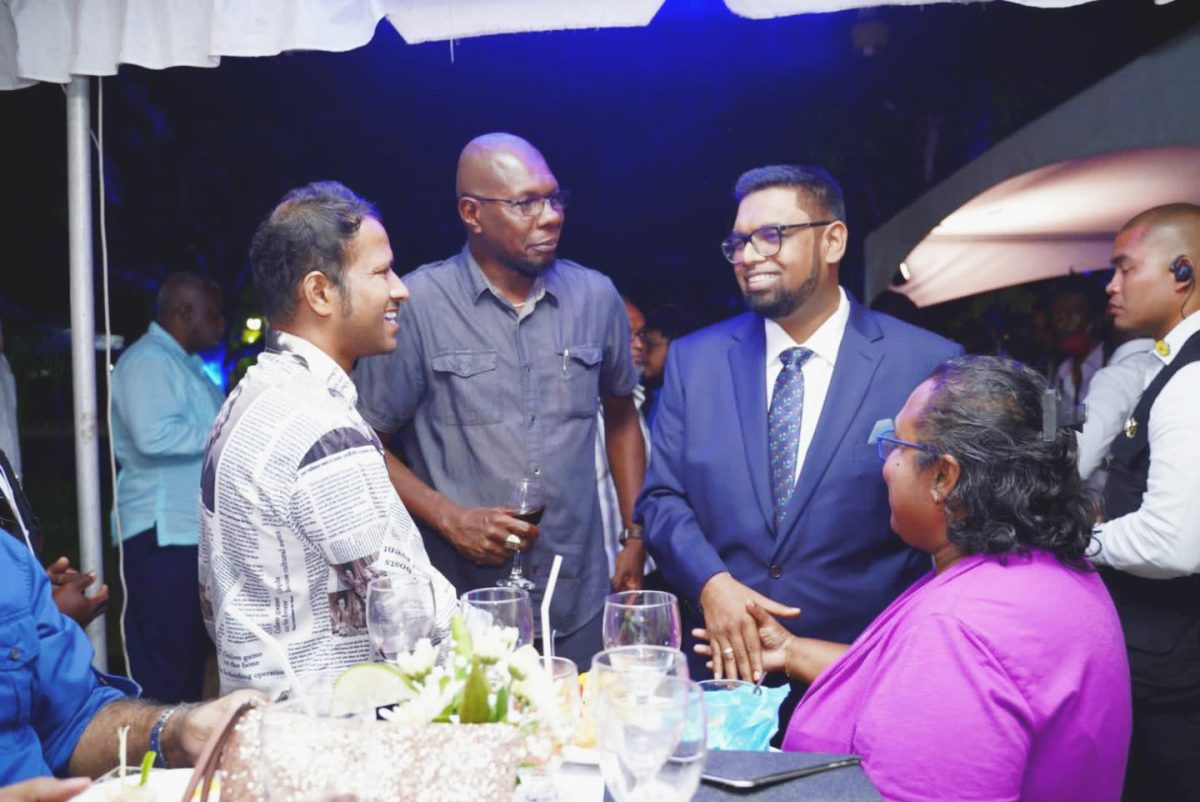The Department of Public Affairs in the Office of the Prime Minister says that it will be moving to consolidate the recommendations from the two day press freedom symposium into actionable outcomes through further engagement of the “key actors across the local spectrum”.
In a statement on Thursday on the May 3-4 symposium at the Arthur Chung Conference Centre, the Department of the Public Affairs said that “chief among the issues emerging as most urgent, is the need for streamlining of social media news and current affairs outlets within a workable framework in the Fourth Estate”.
The National Conference and Symposium organized by the Department of Public Affairs concluded on Wednesday evening with the final panel assembled among social media actors, examining the ‘rise of the citizen reporter and trends for 2022 and beyond’. Earlier panels examined the case for ‘partnerships in communication for development’ and issues surrounding ethics, and legal frameworks.
The statement said that partner stakeholders, local and regional delegates and resource experts participating in the two day event, “have roundly hailed the quality of engagement facilitated through its consultative format”.
A key aspect of the symposium was the unveiling and activation of the virtual Guyana Media and Communication Academy, developed in partnership with the world’s largest online learning platform, COURSERA.
“The first of its kind Academy for the Caribbean region, promises to kick start the process for partnerships in communication for development, with the government taking a fresh lead in the areas of upskilling and knowledge advancement for the Guyanese media fraternity, through the Academy’s world class programmes with participating universities”, the statement said.
The statement added that for the past two years, the Government has taken decisive measures to continue “building its legacy of respect for the Press and the universal freedom to which it is entitled, with marked changes in access for the press over what obtained under the previous government, including frequent engagements and the reinstitution of the constitutional office of Commissioner of information”.
Stabroek News Editor in Chief Anand Persaud who attended the symposium said that it appeared to completely ignore the vital watchdog role of the free and independent media and seemed to want to mobilise all forms of media into some nebulous `partnership for development’. Persaud said that on day one he made the point about the watchdog role and noted its importance in the context of the efforts the media made in 2020 to ensure that free and fair elections were upheld.
He said that on day two he made the point that with all the resources that the government now has access to from the oil and gas sector it must not wittingly or unwittingly take any steps that could undermine independent media which have crucial roles to play in educating the public and holding government accountable. For instance, he said the state is now able to pay higher salaries than non-state media and there has been an expansion in the hiring of media personnel by the various ministries.
Persaud said he would be interested to see what steps would be taken to finalise recommendations from the symposium.
The Guyana Press Association (GPA) on Thursday raised concerns that the two day media conference promoted self-censorship under the guise of responsible reporting and that there was a conflation of journalism with other aspects of communication including social media influencing.
In a statement, the press association underlined the primacy of freedom of expression as underlined in the constitution of Guyana and in the Universal Declaration of Human Rights.
“Based on utterances from a number of government officials including its panelists, the undertone appeared to be engaged in self-censorship under the guise of “responsibility” and “good”. In this regard, we commend the globally recognised Journalism Ethics, Principles and Codes of Conduct”, the GPA said.
It added that Social Media influencers, though they command a following, “cannot and will not be regarded as journalists and they should never contemplate seeing themselves as such”.
The GPA said: “If politicians across the divide claim to have any modicum of interest in improving the standard of journalism, then they ought to immediately cease utilizing social media influencers in the place of journalists. To continue doing so is to contribute to the degradation of journalism at the altar of expediency of reach, likes and shares. In this way, sections of the public are led to believe that such social media content is in keeping with globally accepted standards of journalism. Does this mean that anyone with a few followers, limited language competence, no regard for fact checking etc. can be regarded by himself or herself and the public as a journalist because a politician uses him or her as an information conduit?”
The conference and symposium which saw participation from the Minister of Home Affairs and Information of Barbados, Wilfred Abrahams, as well as the Press Secretary in the Office of the President of Suriname, Alven Roosveld received support from the Office of the Resident Coordinator of the United Nations in Guyana, several civil society and corporate bodies, and saw the attendance of over four hundred media and communication personnel from across the country, along with groups of CAPE Communication students from leading secondary and high schools.






